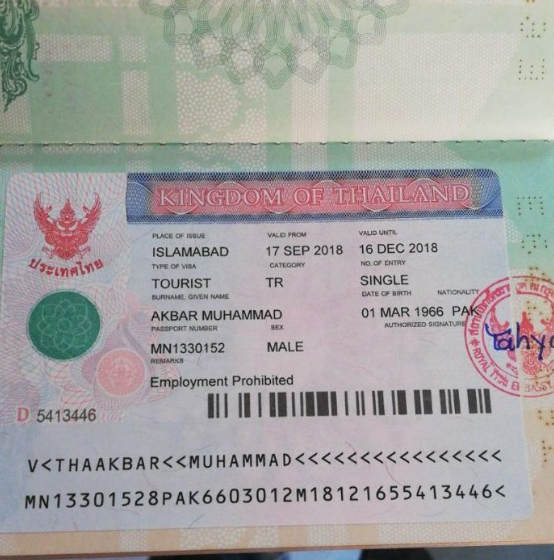If you’re enjoying Thailand’s vibrant culture and stunning landscapes on a tourist visa, but a promising business opportunity comes up, you might wonder: Can you switch from a tourist visa to a business visa without leaving the country? For entrepreneurs facing this situation, understanding Thai immigration laws is essential. Converting a tourist visa to a business visa in Thailand involves following strict protocols, and having legal and immigration support is key to navigating the process.
What Can You Do on a Tourist Visa in Thailand?
A tourist visa in Thailand offers flexibility for exploring the country and engaging in a variety of non-profit activities. Here are some common uses for a tourist visa:
- Tourism: Enjoy Thailand’s beautiful beaches, cultural sites, and vibrant cities.
- Relaxation: Experience the country’s famous wellness offerings, including spas and resorts.
- Volunteer Work: Participate in community-based volunteer opportunities.
- Language Study: Enroll in language courses to learn Thai.
- Short-Term Business Activities: You can attend business meetings, conferences, or negotiations, as long as the activity does not involve earning a salary or engaging in long-term employment.
However, a tourist visa cannot be used for employment or earning an income, and the length of stay depends on your nationality and the visa’s validity.
Business Visa vs. Tourist Visa
The tourist visa is designed for leisure and short-term visits, while the business visa caters specifically to those planning to conduct business in Thailand. This distinction is important, as the Thai government expects business-related activities to be covered by a non-immigrant visa, such as the business visa.
Transitioning from a tourist visa to a business visa requires a few steps. Here’s what you need to know.
The Process of Switching Visas
The shift from a tourist to a business visa is not as simple as updating your current visa status. You must exit Thailand and apply for a business visa at a Thai embassy or consulate outside the country. This process ensures you stay within the legal framework of Thai immigration policies.
Overcoming Visa Conversion Challenges
The conversion process can be complex, requiring a thorough understanding of Thai visa regulations. It’s essential to gather all the necessary documents, including company sponsorship letters, proof of financial stability, and a clear business plan outlining your activities in Thailand. Working with an immigration consultant can help streamline the process and reduce any stress related to paperwork and deadlines.
Legal Compliance: What You Need to Know
To transition successfully to a business visa, your application must be comprehensive and error-free. This often includes:
- Company sponsorship letters: Proof that a Thai entity is backing your business venture.
- Proof of financial stability: Evidence that you can support yourself and your business activities in Thailand.
- Business activity plan: A detailed overview of your intended business operations.
Ensuring that your documentation is accurate and complete will make the process much smoother and increase the likelihood of a successful application.
Timing and Planning
Timing plays a critical role in the visa transition. You will need to carefully plan when to exit Thailand to avoid overstaying your tourist visa and to allow enough time for the processing of your new business visa. Pay attention to consulate hours, holidays, and peak times to avoid delays.
Local Expertise: A Valuable Resource
Navigating Thai immigration laws can be tricky, and local knowledge is incredibly valuable. Consider consulting with a Thai law firm or expatriates who have been through the process themselves. Their insights can help you avoid common mistakes and save time during the application process.
Stay Updated on Immigration Laws
Immigration regulations in Thailand can change frequently, so it’s important to stay up-to-date with the latest guidelines from the Thai Ministry of Foreign Affairs. Being proactive in checking for updates and seeking professional advice can prevent any surprises and ensure a smooth transition from a tourist visa to a business visa.
Conclusion: A Seamless Transition
Changing your status from a tourist to a business visa in Thailand may seem challenging, but with careful planning and attention to detail, it’s entirely achievable. Ensure that all your documents are in order, seek legal advice when needed, and be proactive about understanding the immigration process. With the right approach, your transition from leisure to business in Thailand can be smooth and successful, allowing you to embrace the opportunities this exciting country offers.


